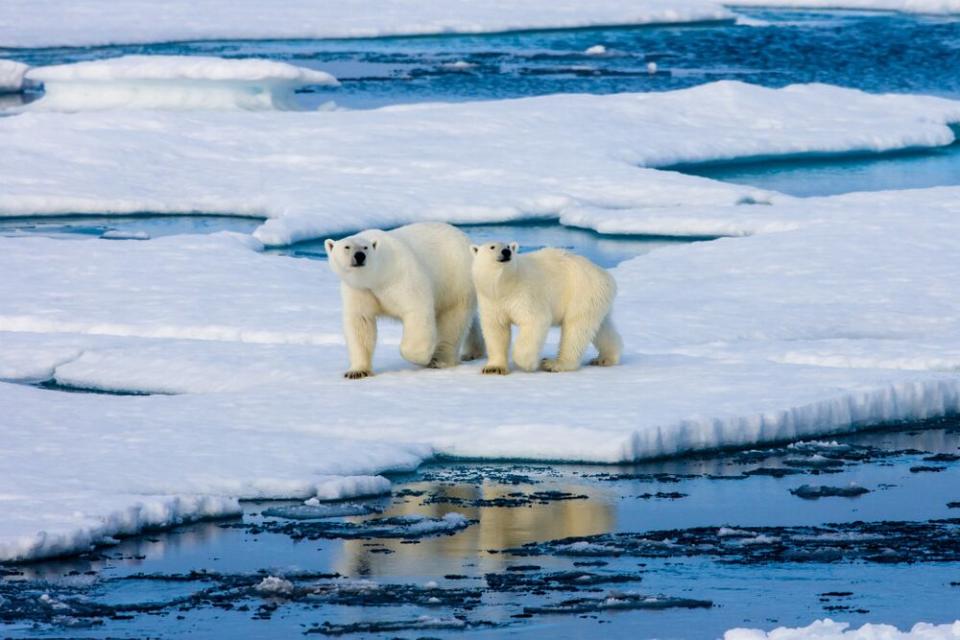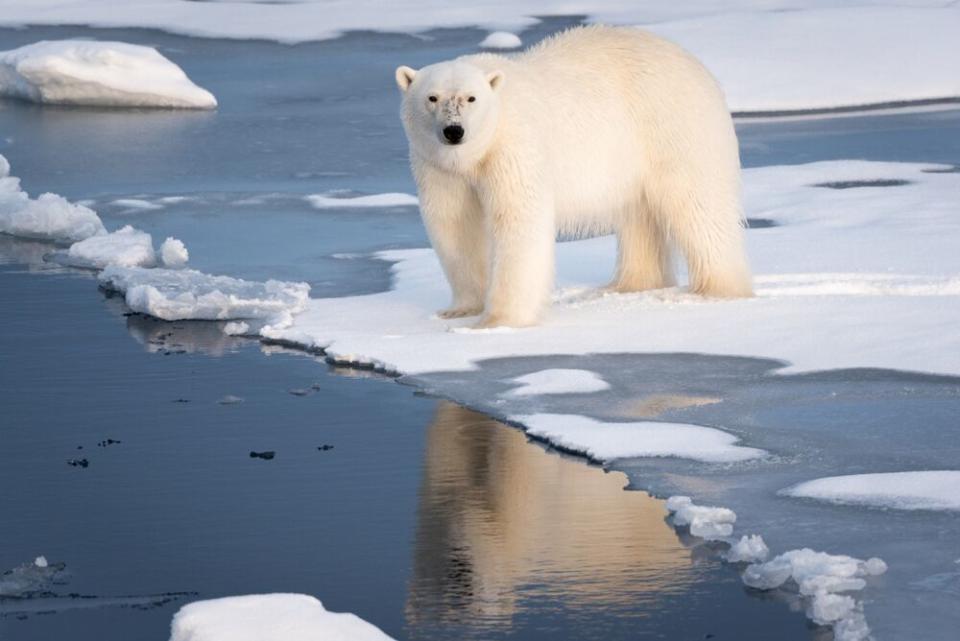Cannibalism on the Rise Among Polar Bears in the Wild, Researchers Say

Scientists are concerned that the Arctic is becoming a bear-eat-bear world.
On Wednesday, researchers at the Institute of Ecology and Evolution of the Russian Academy of Sciences presented findings at a conference in St. Petersburg that showed a spike in polar bears cannibalizing each other, according to CBS News.
While the act isn’t unheard of among the wild animals in the Arctic, the scientists noted that it is becoming a more common occurrence that could become detrimental to polar bear populations.
According to senior researcher Ilya Mordvintsev, there are two primary theories for this bear-on-bear behavior.
“There can be two reasons: During some seasons there is insufficient nutrition, and large males attack females with cubs, and maybe there weren’t so many people in the Arctic to record so many cases of cannibalism,” Mordvintsev said, per Russian news agency Interfax, translated to English. “Now the signals are coming not only from scientists, but also from the growing contingent of employees of oil and gas companies [and] the Ministry of Defense.”
Mordvintsev added: “We note that cannibalism of the polar bear is increasing.”
RELATED: Antarctic Penguin Colonies Have Declined by Nearly 75 Percent in Past 50 Years, Researchers Say

Never miss a story — sign up for PEOPLE’s free daily newsletter to stay up-to-date on the best of what PEOPLE has to offer, from juicy celebrity news to compelling human interest stories

RELATED: 6 Simple Ways to Protect Polar Bears from Climate Change on Polar Bear Day and All Year Round
According to National Geographic, polar bears typically measure 8 feet in length and can weigh up to 1,600 lbs. The large mammals generally hunt seals and have been known to feast on whale carcasses, should they stumble upon one.
Polar bears are the highest on their food chain, meaning they don’t have a natural predator to worry about.
Mordvintsev suggested that the growing presence of humans in polar bear habitats has encroached on their go-to hunting grounds, forcing them to look elsewhere for meals.
“With the active development in Yamal and the construction of an LNG processing plant, the passage from the Gulf of Ob to the Barents Sea began to operate year-round which was not there before in winter,” said Mordvintsev. “The Gulf of Ob has always been a hunting ground for polar bears; now it has been destroyed all year round.”

 Yahoo News
Yahoo News 
